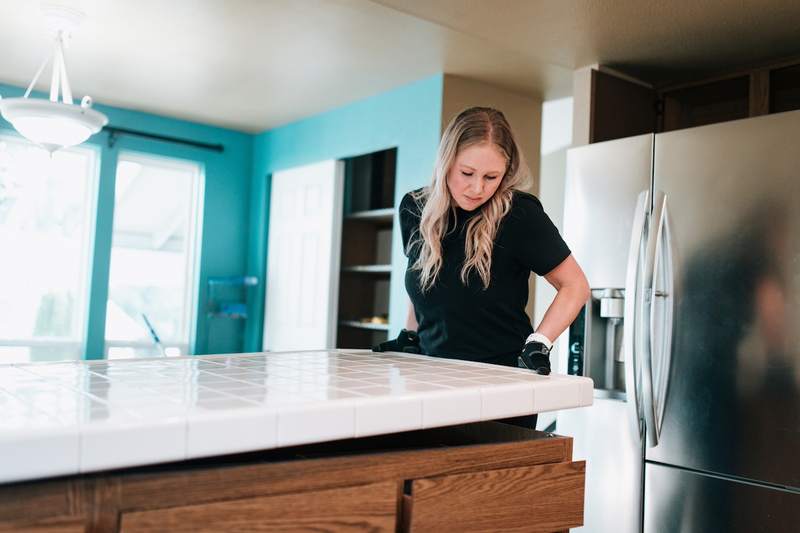If you have less-than-stellar credit or you’re a first-time home buyer, FHA loans can offer a number of benefits to help you overcome some of the most common obstacles to homeownership. These benefits include relatively lenient income and credit score qualifications, as well as a down payment requirement as low as 3.5%.
FHA loans are also insured by the Federal Housing Administration (FHA), making them a dependable form of mortgage financing.
So why do sellers sometimes avoid offers financed by this type of loan?
Let’s take a look at some of the reasons sellers are reluctant to accept FHA-backed offers and what options you have if a seller refuses your FHA loan.
Can A Seller Refuse An FHA Loan?
Yes, a seller can refuse to accept FHA financing, even if the FHA-backed offer matches – or even exceeds – their asking price. As long as a seller complies with equal opportunity housing laws and doesn’t discriminate against a potential home buyer based on race, religion, gender identity, sexual orientation, familial status, national origin or disability, they’re generally free to select the path of least resistance – and maximum profits – when selling their home.
This means that home sellers can choose conventional financing over an FHA home loan or other government-backed loan – such as a VA loan or USDA loan – or they can accept an all-cash offer if one is made. And if they don’t feel any urgency to sell their home or no offer suits their home-selling goals, they’re free to turn down all offers and keep their house on the market for as long as they prefer or can afford.
See What You Qualify For
Buy A Home
Discover mortgage options that fit your unique financial needs.

Refinance
Refinance your mortgage to have more money for what matters.
Tap Into Equity
Use your home’s equity and unlock cash to achieve your goals.
Reasons Why Sellers Don’t Accept – Or Always Like – FHA Loans
Once they’ve accepted an offer on their home, most sellers want to go from purchase agreement to closing as quickly and with as few obstacles as possible. Unfortunately, sellers often perceive the FHA loan approval process as risky because of the FHA’s relatively lenient financial requirements and stricter appraisal and property standards.
While some of those concerns stem from misconception, the Minimum Property Standards (MPS) of FHA mortgages can potentially cost sellers a lot of money in repairs and sales price. Let’s explore in more detail the different reasons why some sellers don’t like – or, at least, are made nervous by – FHA loans.
FHA Underwriting Worries Some Sellers
One reason a seller might refuse your FHA-backed offer is that they believe the home sale may be more likely to fall through due to the FHA loan program’s more lenient underwriting requirements. Because FHA loans help low- to moderate-income borrowers with less-than-stellar credit become homeowners, sellers may feel that FHA buyers are less likely to be approved for a loan than conventional borrowers.
What sellers may forget to consider is that, as long as you have preapproval from a credible mortgage lender, that lender has already checked your credit score, verified your income, calculated your debt-to-income ratio (DTI) and approved you for a certain loan amount.
While initial approval doesn’t guarantee final loan approval, FHA borrowers historically have a closing rate that’s comparable to the closing rate for conventional borrowers. For example, according to an Ellie Mae Origination Insight Report from May 2019, 76% of all FHA purchase loans made it to closing within 90 days, compared to 77% of all conventional purchase loans.
In March 2021, another Ellie Mae Origination Insight Report revealed that FHA purchase loans had a closing rate of 77.2% compared to 78.6% for conventional purchase loans within a 90-day cycle.
FHA Appraisals Concern Sellers
Another concern sellers have with FHA mortgage loans is the FHA appraisal. Let’s take a look at how FHA appraisals compare to conventional appraisals:
- Conventional loans: Because the home serves as collateral for a conventional mortgage, the primary purpose of an appraisal is to determine that the fair market value of the home is not lower than the purchase price. This way, if a borrower defaults on their mortgage, the lender can sell the property, recoup their losses and not lose any money.
- FHA loans: In addition to determining the home’s appraised value versus its market value, the FHA wants to ensure that the property is safe, secure and structurally sound. As such, an FHA appraiser inspects the home to make sure it meets a strict set of standards established by the United States Department of Housing and Urban Development (HUD). We’ll discuss these standards in more detail in the next section. There are health and safety standards for properties backed by conventional mortgages as well, but they aren’t as thorough.
Stricter Property Requirements Can Cost Sellers Money
During an FHA appraisal, the appraiser will check to make sure the property meets the FHA’s Minimum Property Standards. The appraiser will inspect the home systems – such as the HVAC, water heater and electrical systems – to ensure they’re functional. They’ll also look for termite damage, cracks in the foundation, lead paint and other potential safety issues.
So what happens if a problem is found?
- The home sale could be delayed. If a minimum property standard isn’t met, the issue will need to be remedied before the property is approved and the sale can go through.
- The repair could get costly. For example, if a roof leak is found, repairs must be made before the FHA loan can proceed to closing. However, according to the FHA’s MPS, another layer to the roof can’t be added if the roof already has three layers. Instead, the FHA would require a new roof to be installed before you could close.
- The home sale could fall through. If the seller doesn’t have the money for a new roof, you could offer to pay a higher purchase price so they’ll be reimbursed after their home is sold. But that’s only if the higher purchase price doesn’t exceed the loan amount you’ve been approved for. Otherwise, the home loan could be denied, and the sale would fall through completely. Alternatively, they could lower the asking price so you have money for the repair. However, you could have to wait to move in until it’s complete.
In most states, sellers are required to complete a Seller’s Disclosure form that communicates all known problems with the property. A seller isn’t required to look for problems with their home, but if an FHA appraisal revealed an issue that caused a buyer to walk away from the home sale, the seller would have to disclose the newly discovered problem – and likely decrease their asking price – when they relisted their home.
It’s important to remember here that, despite the stricter property standards, almost as many FHA loans make it to closing as conventional loans. But even the distant possibility of losing thousands – or even tens of thousands – of dollars due to the FHA’s Minimum Property Standards is enough to convince many sellers to avoid FHA loans.
Sellers Think FHA Loans Take Longer To Close
Some sellers may believe that the added requirements and stricter appraisal standards cause FHA loans to take longer to close than conventional loans.
On paper, the difference isn’t much. According to the previously mentioned Ellie May Origination Insight Report, it took conventional purchase loans an average of 49 days to close in May 2021, compared to 54 days for FHA loans, a difference of only about a work week.
However, if a seller has already purchased their next home – or if those 5 extra days delay the closing date until the next month – the extra time to close could cost the sellers hundreds or even thousands of dollars in extra mortgage payments and other fees.
Take the first step toward buying a house.
See what you qualify for.
What Are Your Options If A Seller Refuses Your FHA Loan?
Here are some steps you can take if a seller turns down your FHA-backed offer.
Ask Why
It won’t hurt to ask the seller their reasoning for not accepting your FHA loan, but they’re well within their rights if they don’t respond. If they do offer a reason, you may find an opening to improve your offer or make one of the following concessions:
- Offer earnest money. If you put down earnest money – also known as a good faith deposit – the funds will be held in an escrow account until closing, at which time the money will be applied to your down payment or closing costs. Because FHA loans already require a down payment of at least 3.5%, you may not be risking all that much if you offer the seller a good faith deposit of 3% – 4% of the purchase price.
- Make a no-contingency offer. Also known as a clean offer, a no-contingency offer just means you agree not to impose any non-mandatory conditions – such as a home inspection contingency or a title contingency – on the home sale. It’s worth noting, however, that while no formal inspection is required with FHA mortgages, the appraisal is mandatory and a little more involved than the appraisal on a conventional loan. A no-contingency offer removes some of the risk for sellers, but in the case of FHA loans, the more rigorous appraisal is unavoidable. We do recommend home inspections so you know what you getting into, but it’s an option.
- Waive seller concessions. In real estate transactions, a seller concession is an arrangement where the seller agrees to cover some of the buyer’s expenses during the home purchase. Concessions typically include the seller agreeing to pay a portion of the closing costs. However, if a seller is on the fence about accepting your FHA loan, you may be able to convince them by forfeiting some seller concessions.
Finance With A Conventional Loan Instead
Perhaps you have good credit but decided to finance with an FHA loan because you don’t have enough money saved to make a large down payment. In that case, you should know that you may be able to qualify for a conventional loan with a down payment as low as 3%.
You’ll have to pay private mortgage insurance (PMI) on a conventional loan if you pay less than 20% down, but you can have PMI removed from your home loan once you reach 20% home equity.
With FHA loans, you’ll be required to pay a mortgage insurance premium (MIP) for 11 years, until you’ve reached at least 22% equity, or for the entire life of the loan. It depends on how much you paid down at closing and your loan’s case number assignment date.
Research First-Time Home Buyer Programs
If you haven’t owned a primary residence in the 3 years prior to applying for your loan – or if you owned a home with your former spouse – you may qualify as a first-time home buyer in your state.
As a first-time home buyer, you may be eligible for down payment assistance programs and other federal, state or local first-time home buyer programs. Check the HUD website to see what programs are available in your area.
Conduct A Wider Home Search
You’ll need to factor in concerns such as commute time, neighborhood amenities and proximity to friends and relatives, but if the home values in your chosen housing market are outside your reach financially, you may need to cast a wider net.
Speak with your real estate agent or REALTOR® about the real estate markets around your desired area or neighborhood. Extending the parameters of your home search can increase your odds of finding a comparable home at a lower asking price – and perhaps with a seller who won’t refuse your FHA loan.
Budget For A Larger Down Payment
If your credit is holding you back from financing with a conventional loan, you may qualify more easily by saving for a larger down payment. Plus, the more you put down upfront, the more equity you’ll start out with in your home, which can make you seem like a less risky borrower to lenders.
Try Again In A Buyer’s Market
If you can afford to wait, you may have more luck in a buyer’s market. Unlike a seller’s market – where the demand for houses exceeds the supply and sellers are receiving numerous competitive offers – sellers have fewer options in a buyer’s market.
Homes tend to list for longer in a buyer’s market, so you may even be able to negotiate a lower price if you find a seller whose home has been on the market for weeks or months – or even upward of a year.
Ready to Find Out What You Qualify For?
See options that work for your unique financial situation.
The Bottom Line
FHA loans have long been an invaluable financing option for many home buyers who may otherwise lack a clear path to homeownership. These loans also provide accessible mortgage financing that helps maintain the health of the housing market, especially during times of recession when other financing sources aren’t as available.
However, FHA borrowers may find it difficult to stand out in an ultra-competitive housing market. Thankfully, you have some options if you’re finding that sellers are reluctant to accept your FHA-backed offer.

Victoria Araj
Victoria Araj is a Staff Writer for Rocket Companies who has held roles in mortgage banking, public relations and more in her 15-plus years of experience. She has a bachelor’s degree in journalism with an emphasis in political science from Michigan State University, and a master’s degree in public administration from the University of Michigan.












